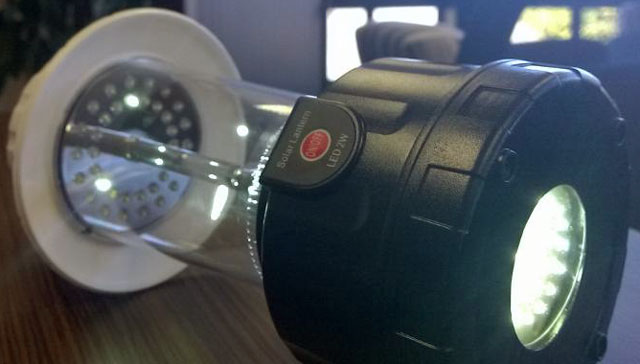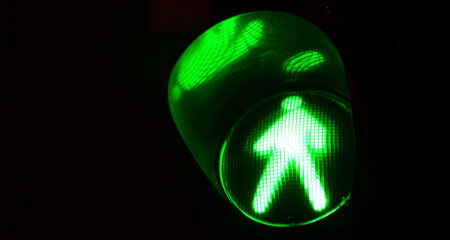
A solar-powered lamp, which doubles as a cellphone charger and as a fully fledged Wi-Fi hotspot, could soon bring safe lighting to poor users in South Africa and elsewhere on the continent. The next model, also due for release soon, will offer wireless broadband.
The “solar jar” project is the brainchild of Net1 Mobile Solutions, a company in the listed Net1 UEPS Technologies stable.
CEO Philip Belamant estimates that the first version of the 2kg jar, which should be released within the next two months, will cost about R270. This version, which won’t include hotspot functionality, consists of the jar, with two LED lamps — one sufficiently bright (3W) to allow people to study or read a book — and the other (1,5W) used as a torch when the jar is dismantled.
Belamant says it was essential that the main lamp was bright enough to allow schoolchildren to study at read at night without straining their eyes. Many of the other solar-powered lamps available today are not sufficiently bright, he says.
The Net1 solution has a separate, square, 3W/6V monocrystalline solar panel and a two metre cable that connects it to the jar’s 3,7V/5Ah lithium-ion battery.
A range of cellphone power adaptors are provided in the box to connect a wide range of smartphones and feature phones.
Net1 Mobile Solutions claims the jar has an operational time, when fully charged, of up to 18 hours and should easily last through the night. Charging time is between five and six hours in sunlight – heavily overcast or rainy conditions will mean charging takes longer.
The solar jars are being manufactured in China, with Net1 planning to give away several thousand as part of its corporate social responsibility programmes.

A second version of the jar, which Belamant hopes will be released soon after the first version (perhaps as soon as a month later), will include a Sim card slot and 3G antenna, along with Wi-Fi, allowing users to create a wireless hotspot and share a data connection.
“That’s the one we’re really excited about,” he says. With its Chinese manufacturing partner, Net1 is working to achieve 12 hours of battery life with both the lamp and the Sim and hotspot active. It’s also trying to keep the price below R300 so that it’s affordable for poor households. The company intends allowing consumers who use one of its banking solutions to pay for it in instalments.
Belamant says Net1 Mobile Solutions intends working with mobile operators to offer low-cost data bundles that make it possible for poor households to afford to get online. “We haven’t signed with anyone yet, but we’re in talks.”
By getting the technology in the hands of the poor, it will get more people online for the first time, he says. Assuming a consumer has a Wi-Fi capable device, their phone will become an e-reader, or something they can use to search for jobs and submit a CV. “If you have thousands of these hotspots, imagine the opportunities.”
Consumers will be able to order the solar jars using USSD, so even those with rudimentary feature phones will be able to apply.
Net1, whose subsidiary Cash Paymaster Services controversially won the R10bn tender to manage South Africa’s social grants system for the poor (the constitutional court has ordered that tender be re-run), intends using its distribution infrastructure in rural areas to deliver the jars. — (c) 2014 NewsCentral Media




